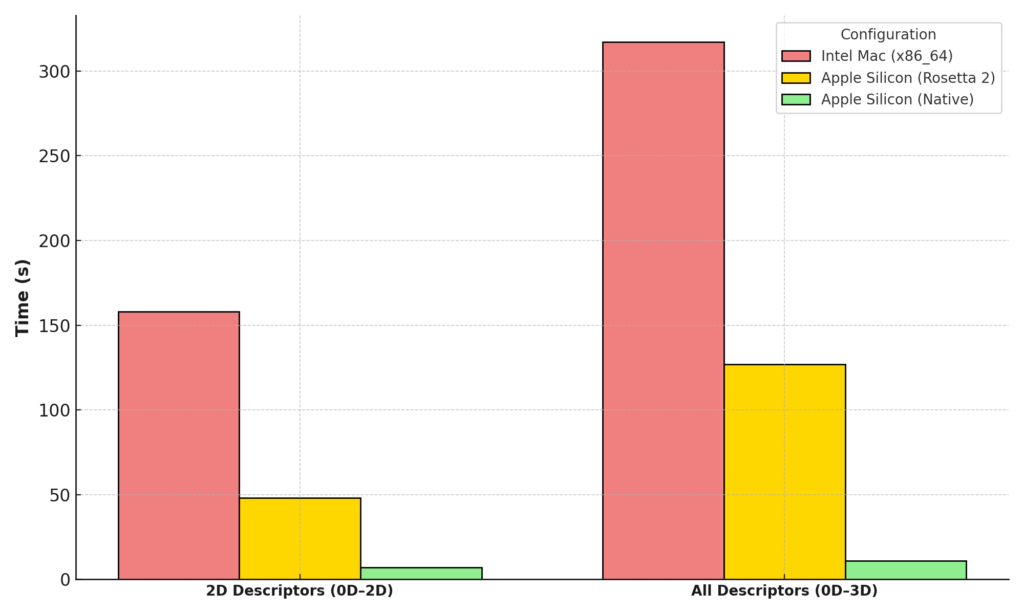I’ve just taken delivery of a new 16 inch M1 MacBookPro with Apple M1 Max chip and I thought it might be interesting to compare the machines running a variety of cheminformatics or computational chemistry tasks. We all know that this new architecture is blazingly fast for video editors but what about us chemists?

I’ve been using a MacBook Pro for a number of years and I’ve been pretty happy, the keyboard was replaced a couple of years ago and I replaced the battery last month. Recently updated to macOS Monterey and used for running a wide variety of cheminformatics and computational chemistry tools.

I’ve now added a M2 MacBook Air, I got the 24 GB memory version. I’ll be using it for travelling to conferences etc. but I thought it would be interesting to see how it compares.

The purpose of these pages is not to try and do a strict head to head comparison, the machines are too different for that. Instead they are intended to help folks decide if the cheminformatics or computational chemistry applications are impacted by the change in architecture and what performance changes they might expect.
I’ve now included data for a M2 Mac Studio Ultra with 192 GB of memory.
List of tools under evaluation
When possible used the latest builds for the M1 arm architecture. Both machines were connected to power and had no other applications running.
I’ve also had a look at energy usage.
I’ve also looked at building software for M1 Macs
- AlphaFold2 protein 3D structure prediction
Also have a look at Scientific computing on Apple M1, part I: ASE and GPAW https://www.mostlyphysics.net/blog/2021/2/6/scientific-computing-on-an-apple-m1-system comparing a 2017 iMac Pro has a 10-Core 3 GHz Intel Xeon W processor, 64 GB of 2666 MHz DDR4 memory, 10 MB of L2 cache, and 13.8 MB of L3 cache. The late-2020 MacBook Pro’s M1 processor has 4 high-performance 3.2 GHz ARM cores and 4 high-efficiency cores, 16 GB of LPDDR4X-4266 memory, and 12 + 4 MB of L2 cache.
A latest news from iChemLabs highlights Apple silicon support for ChemDoodle 2D and ChemDoodle 3D https://www.ichemlabs.com/news/read?post=applesiliconsupport. As the plot below shows there is a significant boost in performance.

Installing TMAP on Apple silicon https://macinchem.org/2024/04/16/tmap-on-apple-silicon/
Alvascience Tools Now Fully Optimized for Apple Silicon https://macinchem.org/2025/01/15/alvascience-tools-now-fully-optimized-for-apple-silicon/

Using Boltz on Apple Silicon https://macinchem.org/2025/06/17/boltz-on-apple-silicon/